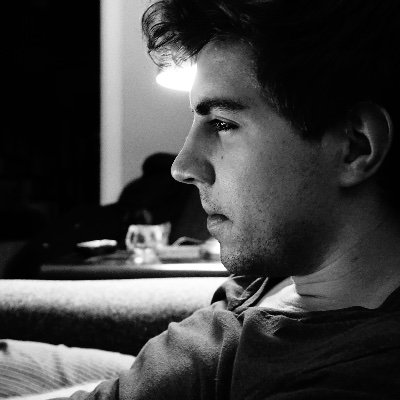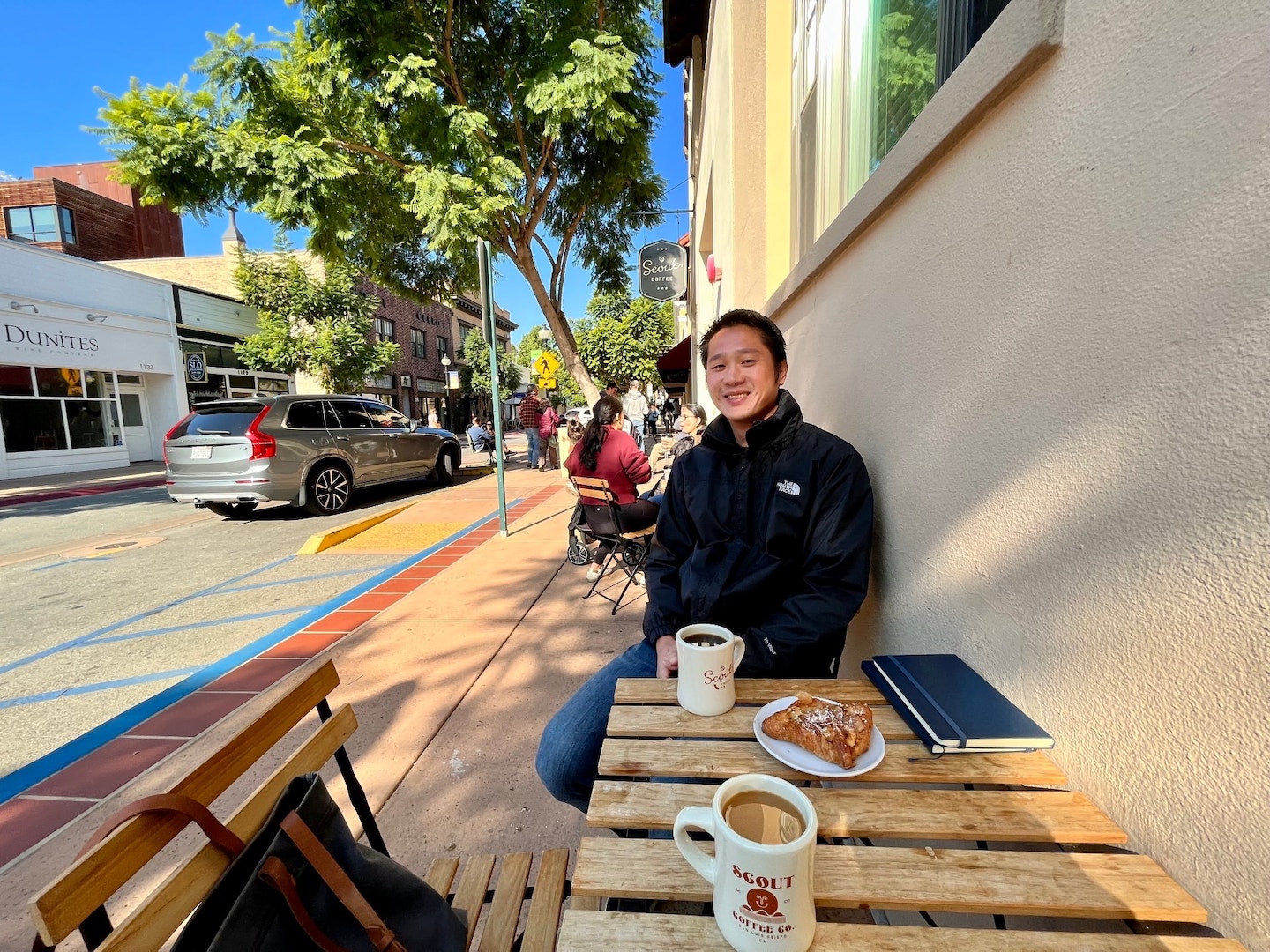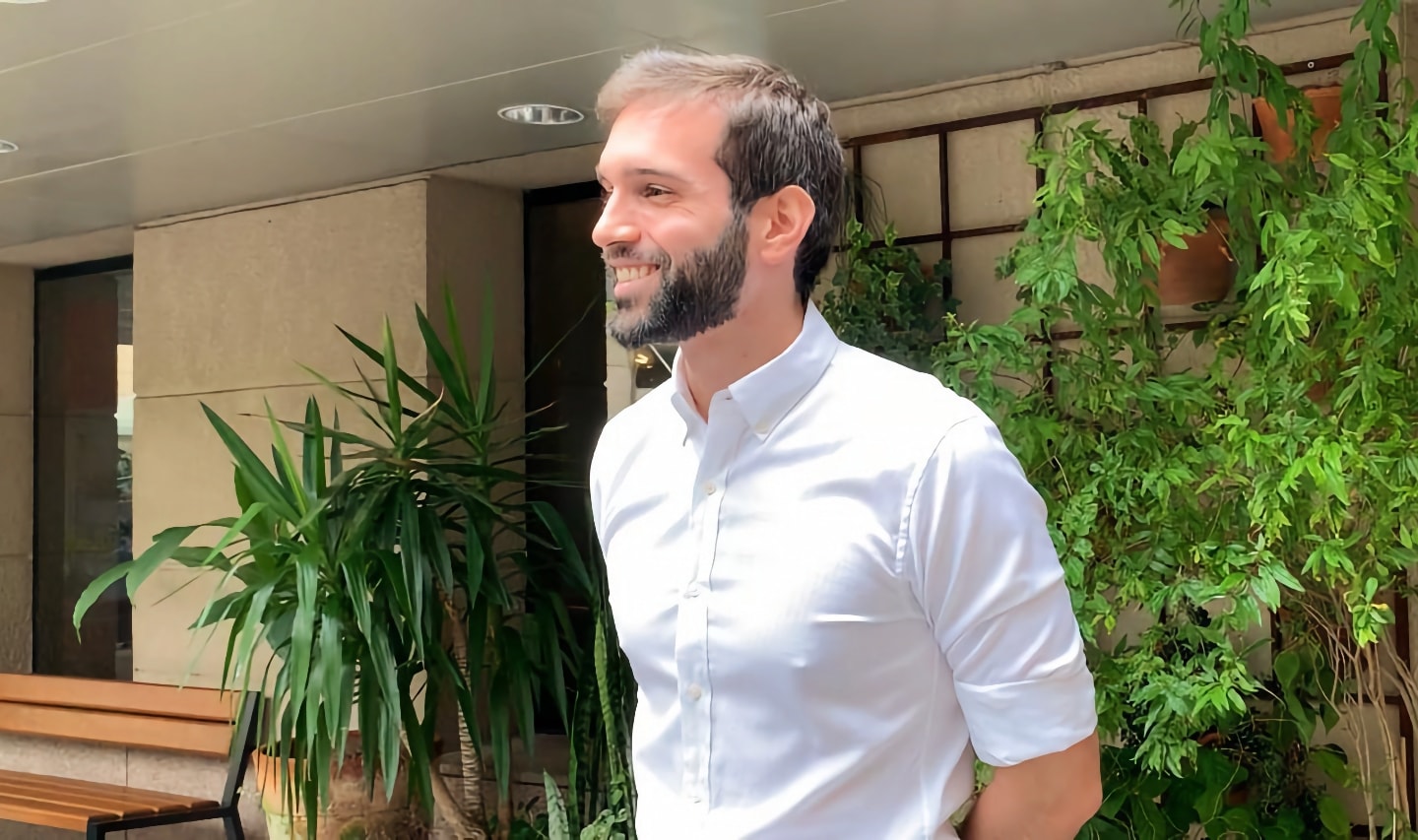29/3/2023
Indie app developers, the App Store “middle class”
In 2022, we downloaded just over 140 billion apps onto our phones. In financial terms, we spent USD 129 billion tapping virtual buttons on the screen of devices that fit in our pockets.
Not even the most optimistic Apple executive could have predicted in 2008, at the launch of the iOS App Store, that this mobile app business could be so profitable. And so useful. From the trivial activities of the early days, like reading e-mail and opening websites, we have gone on to do almost everything on the phone, from paying for things and investing to “summoning” cars and food.
Every now and then I come across stories like that of Hiroyuki Ueda, a retired Japanese designer who imagined an app that, according to him, did not exist: one that would display two calculators at the same time on the phone screen and allowed you to throw the results from one to another.
His unpretentious Twin-Calc became a minor success, to the point of getting covered at The Mainichi, a Japanese newspaper, where I learned this story.
In the early years of Apple’s App Store (and Play Store, the Android equivalent app store), stories like this seemed more common. The consolidation of the app store model was a kind of El Dorado in technology, a huge new market opened overnight, with a more leveled playing field, and that since then has had small periodic boosts, such as the arrival of 4G and the major migration from one-time purchases to recurring revenue (subscriptions).
Coming across the Twin-Calc story has me intrigued. Where are the other such stories? Today, the rankings of the most downloaded and most profitable apps in the stores are dominated by large companies. Other than those that have long established themselves, it seems that it has gotten harder to create sustainable small businesses around apps. The feeling is that the window of opportunity for independent app developers has closed.
Or has it? Another hypothesis that occurred to me was that the sheer size of the industry might be diluting its “middle class,” made up of developers who, while they may not get rich or end up creating empires, manage to make a living from it and lead comfortable lives.
Without intending to come up with conclusive answers, I went to talk to some of them to try to find out the state of this kind of small enterprise.
I spoke with Christian Selig, creator of Apollo, an alternative Reddit app for iOS; Yi Lin, creator of GreenBooks, financial control for iOS and macOS; Andrei Popleteev, creator of KeePassium, a password manager for iOS; and Daniel Marques, creator of Leio, an app for iOS that helps you read books.
Disclaimer: I use or have used all the above mentioned apps. In the case of KeePassium, I pay the annual subscription.
A Spectrum of Situations
The first aspect that caught my attention in these brief conversations with a few prominent solo developers, was the diversity of their situations, almost as if it were a large spectrum.
There are those who live off their apps, those who use them as a hobby that earns a few bucks, and those who, despite years of dedication, have yet to get off the ground.

Christian Selig.
Christian Selig had not turned 30 when he was interviewed by me in late 2022, but he could already boast a successful small business.
Apollo, his app that presents Reddit in a better interface on the iPhone, had amassed about 8 million downloads and was making enough money for the developer, based in Halifax, Nova Scotia, Canada, to dedicate himself fully to it.
The Apollo story began eight years ago, but Christian’s experience developing apps for iOS goes back even further — he has been doing it since 2011. And even back then, he recalls, there was a chorus of those who said there was no more room for independent developers.
For Christian, the situation today is better than in the old days. “It’s like any business, there’s a spectrum of income and stages of business,” he explains.
Luxembourg-based Andrei Popleteev’s KeePassium was launched around the same time as Christian’s Apollo, in 2014, only it started on a different platform — on BlackBerry, under the name KeePassB.
“I made it mainly for myself, because I needed a way to use my KeePass database when mobile,” he explains.
Migrating to the iPhone in 2018, combined with the free time he devoted to his hobby — developing apps — culminated in the app’s migration to Apple’s platform, a project started just two months after Andrei learned the intricacies of programming on iOS. (“The early mistakes cost me a lot of time later on, but I eventually I managed to refactor them out.”)

Andrei Popleteev.
Like Christian, Andrei’s main source of income is his app. KeePassium is used daily on about 4,000 devices. In 2020, it earned USD 50k (already discounted Apple’s fees, before local taxes).
“I don’t know about making millions, but making a healthy living is absolutely possible. In a niche market, being small is an advantage,” he says.
He continues his reasoning:
Imagine an app that solves a small, but non-trivial problem. Generates bingo cards for elementary school teachers (hat tip to @patio11); plays weather forecast in Morse code; generates animated QR codes that rotate; edits an obscure file format, after all. In the whole world, there are maybe 10000 people who would happily pay $10/year for a solution. So that’s a $100k/year source of revenue for anyone who creates that solution.
KeePassium’s recurring revenue, good enough for most people in most parts of the world, may not pay off for a large company. “For them, making such an app would involve a developer, a designer, a manager, a tech support person — each one with a salary, benefits, office space, etc. This would cost more than the app can possibly return.”
For an independent developer, who concentrates all these roles without having to leave home, it’s a different story.
Only there is no guarantee that things will work out, even if the app is good. Andrei himself acknowledges that while it is possible, coming up with a successful app, the kind that will sustain a person or a family, is a combination of skill, luck, and persistence (“like digging a well”), and that such endeavors “can fail in so many ways.”
Near ground zero of the digital revolution, in Orange County, California, Yi Lin created and has been single-handedly maintaining a personal finance app called GreenBooks since 2011.
Since that time, Yi alternates periods of full-time dedication to the app with outside consulting work in web and application development and ERP systems.
A common trait among most independent developers, GreenBooks was created to ease a pain Yi himself had.
“As an avid Mac user, I found Quicken to be very poorly designed and complex. I wanted to create a personal finance app that has the simplicity and ease of use of the Mac, not to mention beauty. That is why I created GreenBooks,” he says.
Today, GreenBooks is available on iOS as well. With about 1,500 monthly active users, the app earns close to USD 1,500 per month, a mark reached not long ago. “Most months, [GreenBooks] was making less than USD 500/month,” he says.

Yi Lin.
To this day, GreenBooks does not earn enough for Yi to devote himself to it. In 2022, he decided to take six months away from his other jobs to focus on the app, especially the part he has the most difficulty with: marketing. “As a software engineer, marketing is an unnatural task for me. It took me many years just to realize that marketing is necessary, that the ‘if you build it they will come’ mentality is flawed.”
Realizing this weakness motivated him to take action, but at that point he found himself at a loss. “I had a hard time knowing what to do.” Solution? Think less and do more. “I am focusing on App Store Optimization by using keyword research tools like Appfigures. I am also continuing my effort to produce written and video content to document my app, as well as writing newsletters to engage my audience.”
The most important move, however, was to open up, to talk about GreenBooks with users, friends, family, “anyone willing to give me feedback.” Good ideas have already emerged from these exchanges.
Leio, by Daniel Marques, a developer and psychology professor in São Paulo, Brazil, is a companionship app for reading physical and digital books. The app records reading sessions and gives back a lot of statistics of the books read, such as time spent, number of pages per session and other data. The user can also make notes and save quotes that are tied to the book record.
“Today, honestly, I have used it very little,” Daniel confesses, “but my plans are to, as soon as I have time, turn it into something I enjoy using again.”
Even for those who live off their app, like Christian, there always seems to be a lack of time: “It’s a precious resource and I wish I had more of it to do all I wanted,” he says.
The lack of time has a direct link to the concentration of assignments inherent in the solo work of these developers.
Andrei comments that “keeping the rhythm” is the biggest challenge in his routine:
It is too easy to postpone a feature when you don’t feel like making it. It is too easy to dive into coding instead of making a strategic decision. You don’t have a boss to keep you moving. Instead, you have to do it yourself. There is something deeply philosophical in having to become the very thing you tried to escape from.

Daniel Marques.
Launched in 2015 (or 2016; Daniel couldn’t say), Leio makes about USD 2,000 per month. The app has, cumulatively, about 100,000 downloads, with a current average of 1,000 downloads per month.
By the nature of Leio, active users are quite few: “A lot of people open [the app], but those who actually spend time on the app average about 30-something,” says the developer.
Platform support
One of the most intense debates going on in the tech world is that of app store monopolies, in particular Apple’s App Store.
Companies like Spotify and Epic Games (from Fortnite) complain about the tax that Apple charges on transactions made on iOS and the mandatory app distribution through the App Store.
Complaints also exist on Android/Google, although less intense because on this system it is possible to sideload apps, cutting Google’s official store entirely (although it’s not an easy or full-proof route).
Following the legal disputes and the insults packed into large advertising campaigns from those huge companies can give the impression that Apple and Google are absolutely negative forces in the app economy.
Whether they are right or wrong, the fact is that independent developers believe that the official stores from Apple and Google are more advantageous than problematic to them and their peers.
“I think overall they’re great,” says Christian. “They handle so much for indie devs and make it easy for us to get our apps out there, and the 15% we pay them is more than worth that.”
KeePassium’s Andrei agrees, and lists other advantages of the model:
- “They handle payments and international taxation so I don’t have to think about it.”
- “They give users a familiar way to pay for apps (easier payments = more purchases).”
- “They provide a “single point of entry” for users searching for apps; this way I don’t have to submit updates to dozens of platforms.”
In 2020, sales in Apple’s App Store totaled USD 643 billion, according to an Analysis Group study commissioned by Apple. Also according to the company, since 2008 the App Store has paid out more than USD 320 billion to developers who sell digital items and services in its store.
Yi, speaking only about Apple’s App Store (his app is not available for Android and he has no experience on other platforms), disagrees with the group, saying that working with Apple is “an extremely frustrating process”.
His main criticisms are directed at the App Store’s app review process, which can reject an update without specifying what the problem is, and with the App Store’s search algorithm, which no one seems able to understand and, he says, often singles out inferior apps with fewer downloads than his. “I think you can’t depend on the App Store as the only marketing mechanism.”
Daniel thinks the platforms help, but could help more. “When Apple features an app in the App Store, that makes the downloads multiply by a hundred, it’s a crazy thing. Only, of course, I wish they would feature me more often,” he comments.
He reminds that apps that are updated frequently and that showcase new iOS features are more likely to be featured. The problem is time to dedicate to it.
“Big companies are much more likely to do an update as soon [a new version of] iOS is released, while I, who have another job, end up not being able to. I think if you dedicate yourself and do a good job, Apple ends up helping you.”
David Smith’s Widgetsmith is a fine example of this dynamic at play. Launched in 2020 on the heels of iOS 14, which brought widgets as its flagship feature, David’s little app hit 100 million downloads just the other day.
In the post celebrating the milestone, David commented that:
The success of Widgetsmith was made possible by the amazing platform Apple has made and the amazing users it has attracted. While my work is the middle conduit between Apple’s engineering on one side and the end user’s creativity on the other, my work could not exist without either side of that equation.
The trajectory of this developer encapsulates many aspects commented on in the interviews I conducted with others. For example, the mix of luck, insight and persistence: Widgetsmith, David’s most successful app, was the 59th he released in over 12 years of working with apps.
Advices
Patience and persistence are the elements that Daniel advises as paramount to launching into this world of independent apps.
“In my case,” he says, “I think it was only time that brought some relative success. But I only persisted for so long because it was precisely something I wanted for myself and I was always the first user, so that’s another thing: make something you like and want to use.”
Andrei and Christian say something similar. Andrei:
Remember that even an overnight success takes years of work, so take your time.
Christian:
Most apps don’t explode right out of the gate, or at all. Having an app is like any other business, it can take time to find your market, improve your product, grow your userbase, and create a sustainable income for your business. Having the expectation that that will all fall into place Day 1 is just a recipe for disaster. Plan for a great 1.0 product to entice people with, and iterate from there if you think you’re onto something. And don’t forget marketing.
“Truth be told, marketing is at least as important as development, if not more,” says GreenBooks’ Yi Lin. And marketing, for him, goes far beyond posting on Instagram or buying ads on Google:
Marketing is an understanding of your product’s position in its market, the message you want to deliver to your audience, the entire user journey through discovering and using your product, and lots of hustling to get the word out about your product.
Discuss @ Hacker News.